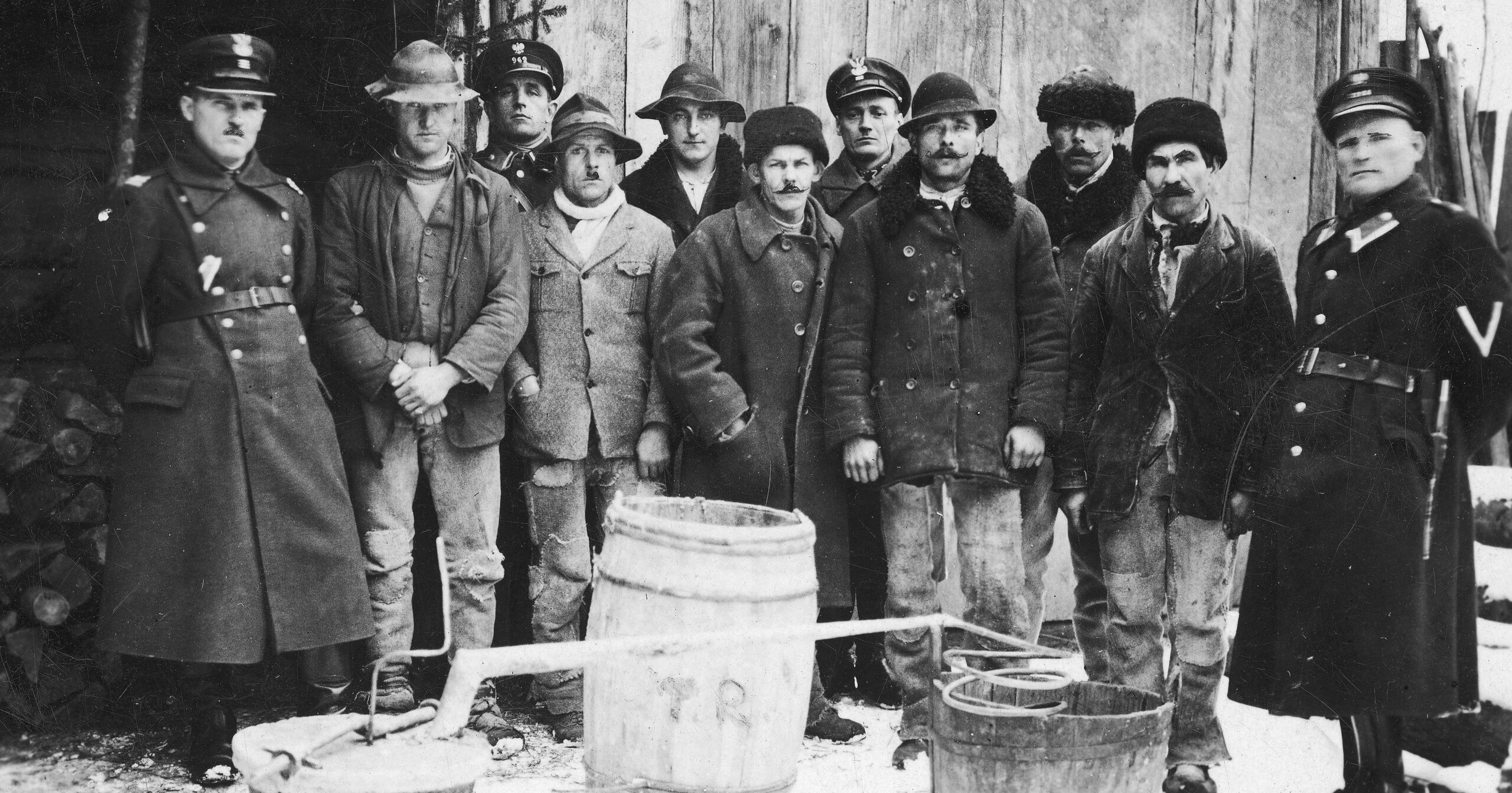Homemade liquor should be legalised for personal use, says newly elected Polish farmers’ leader

The head of a farmers’ protest movement who has just been elected to parliament says he wants homemade liquor to be legalised for personal consumption. He notes that such moonshine, known as bimber in Polish, is an “important element of our cultural landscape”.
Michał Kołodziejczak is the leader of Agrounia, which has been organising protests by farmers in recent years. Ahead of last month’s elections, his organisation became part of Civic Coalition (KO), the largest opposition group.
KO is now set to come to power after those elections gave it and two allied opposition groups a combined parliamentary majority. And Kołodziejczak himself, who was elected as an MP, is likely to play a prominent role in the new coalition.
In an interview this week with Gazeta Wyborcza, a leading daily, the first questions Kołodziejczak was asked related to alcohol, including whether “he will finally ensure that bimber can be produced legally for one’s own needs”.
Niech lewica zrobi deal z PSL i Kołodziejczakiem. Bimber za związki partnerskie. Bimber i tak ludzie na wsi pędzą, jak zalegalizują na własne potrzeby to poczują, że PSL i Kołodziejczak przywrócili im godność. Dla nas godność to rozpoznanie przez państwo naszych związków. pic.twitter.com/my6KOD8kvp
— Piotr Pjotrowicz (@pjotrowicz) November 1, 2023
The farmers’ leader confirmed that he would seek to do so: “I am in favour of loosening the law regarding the production for one’s own use, but, of course, based on healthy principles. Only safe amounts and – as I emphasise again – for personal use.”
“[Alcohol] formerly known as księżycówka [a Polish term that more literally translates as ‘moonshine’] was an important element of our cultural landscape, associated with mystery, breaking norms, and freedom from the state,” added Kołodziejczak. “It was a reason for pride, just like the liqueurs Poles were once famous for”.
“It is also about a certain kind of freedom – to do whatever you want on your own farm,” he continued. “This [freedom] has recently been taken away from Poles, even in very basic areas. Therefore, I am in favour of freeing up farmers [to produce] alcohol for their own use.”
Another atraction is #forest #moonshine #factory – machines for illegal production of spirits. #Moonshine #vodka is called #bimber and traditionally is produced from rye and has >60% V. It’s another local atraction, but unfortunately illegal both for producers and consuments. pic.twitter.com/Z4mUtqYRcc
— Marcin Dyderski (@mkdyderski) July 26, 2020
At the same time, however, Kołodziejczak noted that, while there is a “stereotype that someone who doesn’t drink can’t survive in the countryside”, in fact things have “changed a lot in this respect”. He revealed that he himself does not drink and celebrated the opposition’s recent electoral success without alcohol.
Kołodziejczak’s demands to legalise moonshine were, however, criticised by an MP from the ruling Law and Justice (PiS) party, Bolesław Piecha, who is also a medical doctor and former deputy health minister.
He told newspaper Fakt that Kołodziejczak’s claims are “fairy tales” based on “simple solutions where everyone can do what they want”. Allowing homemade alcohol production would be a “health hazard”, warned Piecha
Poland has introduced an extra fee for sugary and alcoholic drinks in order to improve public health
It will bring in around 3 billion zloty a year, but the government, which had promised not to increase taxes, argues it is technically a „surcharge” https://t.co/dgGfnt4Nc5
— Notes from Poland 🇵🇱 (@notesfrompoland) August 29, 2020
Illegal homemade alcohol has a long history in Poland, especially in the countryside. The word bimber itself, however, comes from slang used among thieves in the capital Warsaw.
It famously featured in the opening line of a popular song among Polish resistance fighters in World War Two, which began: “An axe, a hoe, a glass of bimber” (“Siekiera, motyka, bimbru szklanka“).
The production of bimber also flourished in communist Poland after the war, when there were often periods of shortage and rationing, including of alcohol.
Under current Polish law, wine, beer, perry and mead can be produced at home for personal consumption but spirits cannot, notes the Dziennik Gazeta Prawna newspaper. Production of small amounts can result in up to one year’s imprisonment while large quantities can lead to a sentence of up to two years.
A street in Warsaw recently named after a local communist-era producer of cheap wine will have to be renamed after the provincial governor decided that the alcoholic reference breaches national law by “not promoting abstinence” https://t.co/oEceOCjZ48
— Notes from Poland 🇵🇱 (@notesfrompoland) January 5, 2022
Notes from Poland is run by a small editorial team and published by an independent, non-profit foundation that is funded through donations from our readers. We cannot do what we do without your support.
Main image credit: NAC/Wikimedia Commons (under public domain)

Daniel Tilles is editor-in-chief of Notes from Poland. He has written on Polish affairs for a wide range of publications, including Foreign Policy, POLITICO Europe, EUobserver and Dziennik Gazeta Prawna.






